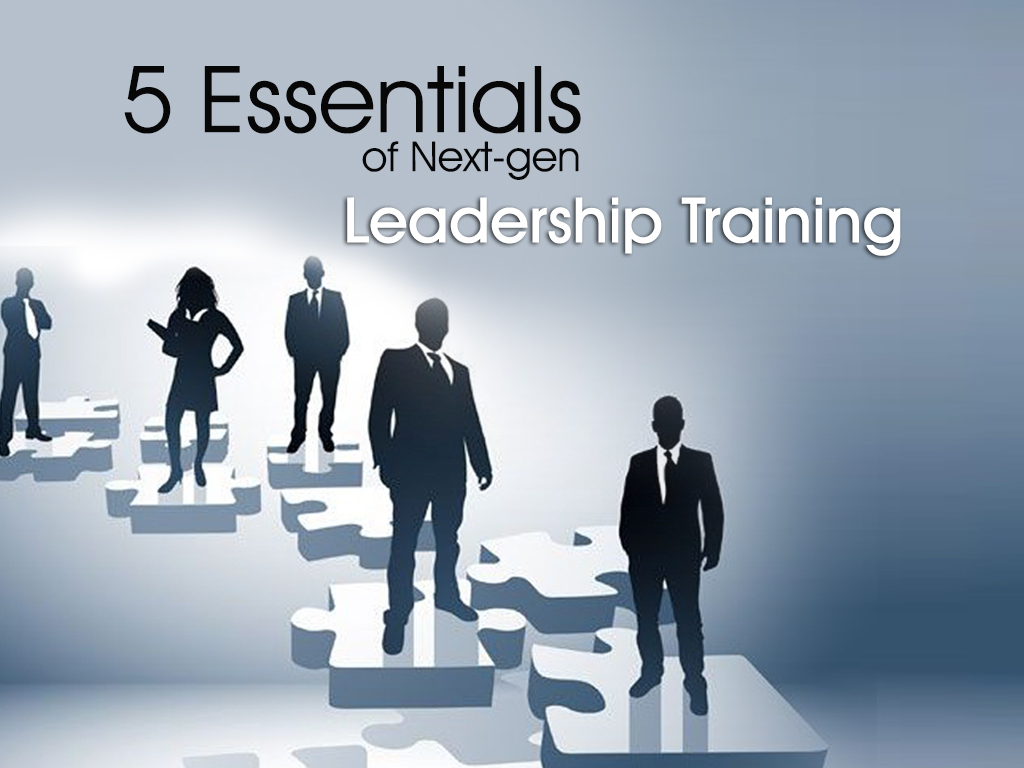5 Essentials of Next-gen Leadership Training

John Doe had been a successful Manager in the Mobile phone trade in Dubai. He was promoted six months ago, as the GM - at which point he experienced escalated stress in managing the demands of the role. John then sought out help internally and his progressive minded CHRO engaged the services of an Executive Coach to help one amongst their high potentials.
The executive coaching worked over a period of three quarters and focussed on his leadership growth needs. Towards the end of this period, his stakeholders came to believe the positive behavioral change in his obsessive compulsions. The team now engaged fully with him, as a cohesive growth unit to achieve their business objectives.
What worked for John is seeking help..as the classical models of management were not enough to equip him prepare for the business challenges of tomorrow. In this context, let’s review the 5 essentials of next-gen leadership training.
1 Future Foresight
I was fortunate to attend the Knowledge Summit 2016 in Dubai, where I experienced first-hand how the progressive leadership of the UAE manages foresight through the Future Foresight Foundation in AbuDhabi. This entity envisions to;
a)Develop the future foresight planning capacities of public and private entities, and
b)Developing scenarios that foresee future orientations and
c)cope with it in a manner that ensures its excellence and maintains satisfaction of the citizens.
Leaders entrusted at the helm of business affairs could do well to consider the bigger context and how it fits with organisational purpose.
A future focussed leader needs to ask the following questions:
- How will the likely change affect our enterprise?
- How should we respond to this foresight?
Max Planck (Nobel physicist)
Practical techniques like SWOT, scenario planning and cost benefit analysis allow for vetting the strategy elements to ensure continuity.
2 Building Alliances
Re-structuring, consolidations can be seen routinely and most of us have closely witnessed the effects of the new normal. Companies seek to focus on their competitive advantages and outsource the non-core functions.
Developing, managing and then leading under the new VUCA environment (Volatile, Uncertain, Complex, Ambiguous) will mean that leaders today will need to manage alliances, network across departments/industry and forge partnerships to effect business solutions.
In this context, I am reminded of an insightful definition of “I am Fine” from the 2003 movie ‘The Italian Job’ where ‘Fine’ relays the mental state of the strategist to be as "Freaked-out, Insecure, Neurotic and Emotional."
A leader will need to build capability in connecting and interacting with people who are diverse across cultural, socio-economic or political constructs.
3 Managing change
Future leaders must contend with new business challenges for which there are no established models of leadership. Classical management models can offer some guidance for the new leadership models, however there is no single established model that could help the future leaders.
The market being a constantly fluid environment, will need to deploy tactics as never before - that could see the outcome as spelling success or failure. It is important to note that new ideas often lead to backlash, and the "usual suspects" from the network will often point out flaws with a vengeance. A good leader will see this as an opportunity to correct any misconceptions within the new tactics but not as a call to abandon the idea entirely.
Guiding the teams and organisation through uncharted waters will test the individual’s skills as managing change becomes a key skill set in the leadership arsenal.
4 Encourage constructive dialogue
While some leaders rationalize one way directional communications in the paucity of time – it is forgotten that engaged minds deliver a far better execution compared to disengaged teams.
Peter Drucker clarifies the difference between leaders of authority from yesterday vs the new leadership needs “The leader of the past was a person who knew how to tell. The leader of the future will be a person who knows how to ask”
Given the crucial element of alliances – the organisation of the future will need a blend of humility through building alliances and then empowering the teams with good dialogue for the success of any venture.
Some of the key behaviours in this zone are:
1)Listening with an open mind 2)Accepting constructive feedback 3)Welcoming new ideas
5 Execute
Several of above defined characteristics will differentiate between great leadership and the average. The crucial element comes when the rubber hits the road i.e. when the leader gets into execution of the mission along with the team in a positive way that also raises the dignity of the those who put in their labour.
This is a person who commits to being personally visible and shows up to conduct business reviews where the line of questioning is not “Who is to blame here” but rather “What could you have done differently”?
Being present in the trenches will allow you as a leader to not only connect with your people but also get a first-hand feel of the business.
Future
In the future leading companies, will compete for the brightest of leaders. There is a clear deficit of good talent. How can companies develop a leadership pipeline that allows them to prepare for the future today?
One way is to assess the current high potentials through Leadership behavioural assessments against a well-defined job profile for the role of tomorrow. Thereafter assess the behavioural gaps and agree on which of them are important to be developed.
Engaging the services of an executive Coach helps the business, achieve the needed leadership behavioural change over a defined period and safeguards the organisation from the leadership deficit for the needs of tomorrow.
